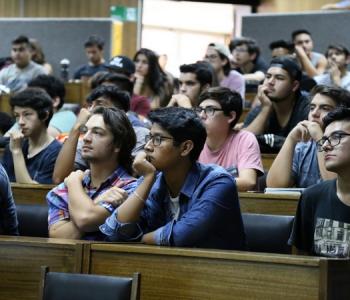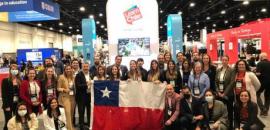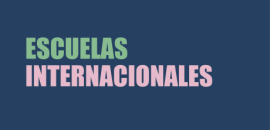Se encuentra usted aquí
Faculty of Engineering is pioneer in the use of active methodology in classes taught in English

Friday, May 22, 2020
The courses offering is now available and calls will open shortly for students who meet the requirements.
The CLIL methodology (Content and Language Integrated Learning) is a teaching approach that integrates contents and a second language based on four different concepts: content, cognition, communication and culture. This method focuses on developing cognitive skills and wider perspectives to understand contents in a foreign language.
Last January, 15 academics of the faculty received certifications on the use of this methodology to give different specialized courses in English language for 2020.
This project aims at promoting internationalization of curriculum on engineering students. The main purpose is that students can participate in these classes with the use of English as a main of instruction in order to improve their linguistics abilities and to strengthen their professional profile, according to the needs of a more globalized world.
This initiative is the result of an agreement signed between the College of Continuing Education of the University of Dalhousie and the Universidad de Santiago de Chile and provided academic training to academics in terms of language adaptation techniques, active teaching methodologies, and language assessment practices.
Faculty members of the Departments of Metallurgical, Mechanical, Geographical, Chemistry, Mining, Electrical, Civil and industrial Engineering will develop elective and specialized courses with CLIL methodology in part-time basis or soft CLIL.
Dr. René Garrido from the Department of Geographical Engineering talks about his experience on this certification process. “One of the fundamental aspects of internationalizing the curriculum is achieving a world-class education. For this, the active learning methodology is crucial for our classes, especially when you add CLIL.” Garrido will give three courses during the first semester of 2020 with this method.
On the other hand, the Vice-dean for Academic Affairs of the faculty, Dr. Rosa Muñoz, deeply appreciated the progress this project has had by bringing students closer to a professional and international future. “We consider that opening these experiences to students goes beyond that the curricular aspect, but this allows to educate students in abilities on communication, innovation and entrepreneurship. And finally, it train students to be eventually active and responsible agents to positively impact in their respective working areas,” she concluded.
Written by Catalina Águila
Translated by Javiera Díaz



